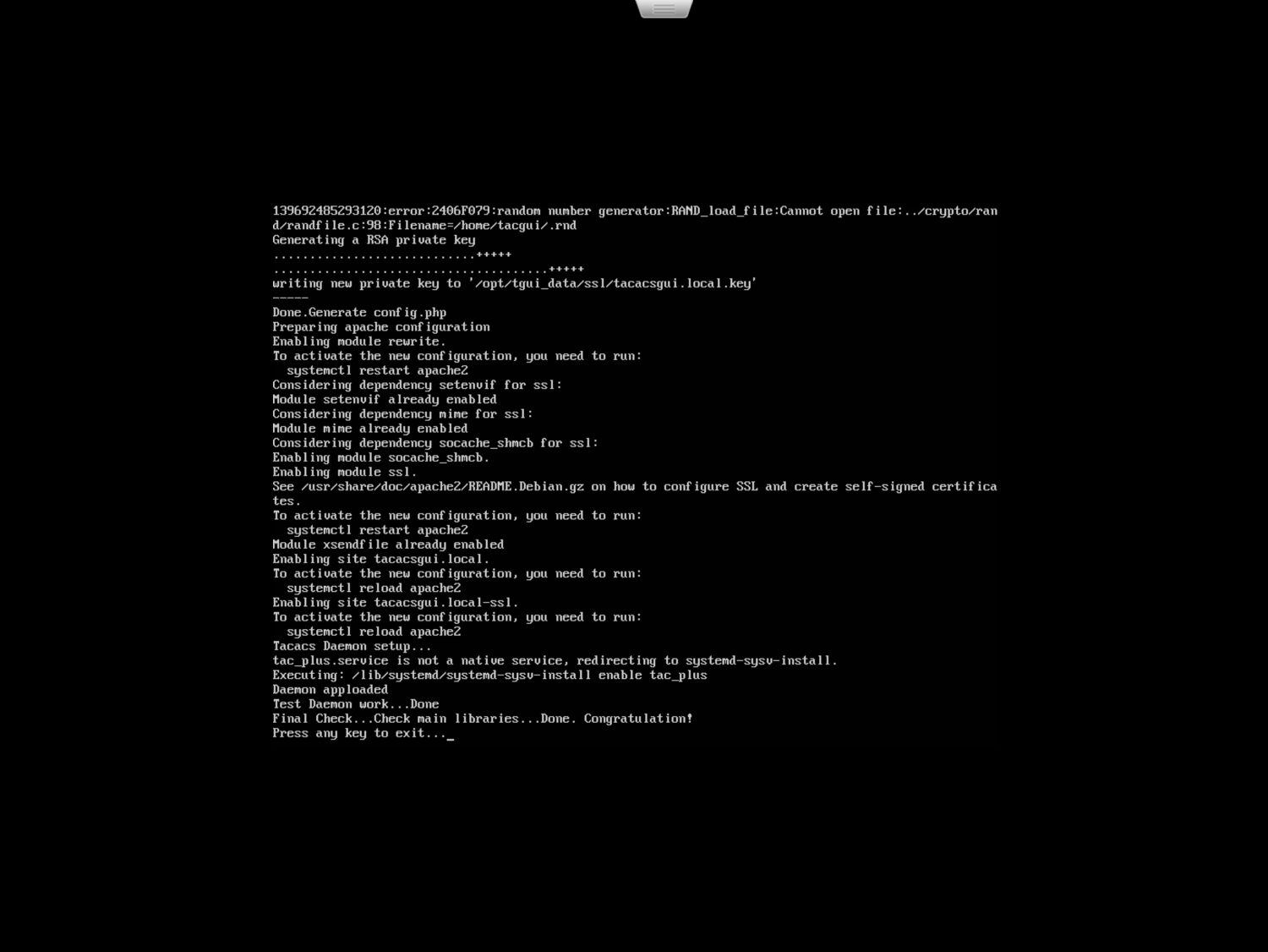When Ubuntu Installation process is completed, you can run TACACSGUI Installation script. It is also very straight-forwards. All you need is to run next command:
sudo ./tgui_install/tacacsgui.sh silent
Default login and password to access Ubuntu terminal is tacgui/tacgui.
Installation script will make two main phases
- Checks all packages and libraries that required for Ubuntu, if something is missing it will install it.
- Downloads and installs TACACSGUI package.
First Installation Phase
More info about the first phase. Script will do next steps:
- Install MySQL (if missing). Script will generate random password for database user (tgui_user) and for root user. You can find all password in file /opt/tacacsgui/web/api/config.php.
- Check required for Ubuntu packages ( python3-mysqldb, ibmysqlclient-dev, python3-dev, make, gcc, openssl, apache2, lwresd, curl, zip, unzip, libnet-ldap-perl, ldap-utils, ntp, libapache2-mod-xsendfile, libpcre3-dev:amd64, libbind-dev ). Installs if missing.
- Checks access to github.com, packagist.org, tacacsgui.com.
- Checks installation of TACACS+ daemon (tac_plus). If daemon is missing, script will install fresh copy of TACACS+ daemon (tac_plus).
- Checks PHP version. If server has old version than required version it will try to install new version of PHP.
- Checks installation of PIP (Python packet manager). Installs if missing.
- Checks installation of Composer (PHP packet manager). Installs if missing.
- Checks sudo permission for some files (to get more info use command
sudo visudo). Sets if missing. - Checks Ubuntu version.
If first phase finished successfully script will move to the next phase.
Second Installation Phase
The last phase of installation contains next steps:
- Check access to MySQL database. Script will get all credentials from first phase (fresh installation) or it is trying to find configuration file with passwords (in case of re-installation)
- Downloads repository from github.com.
- Installs/Upgrades all required PHP packages (via Composer)
- Installs/Upgrades all required Python packages (via PIP)
- Checks Installation is finished successfully.




